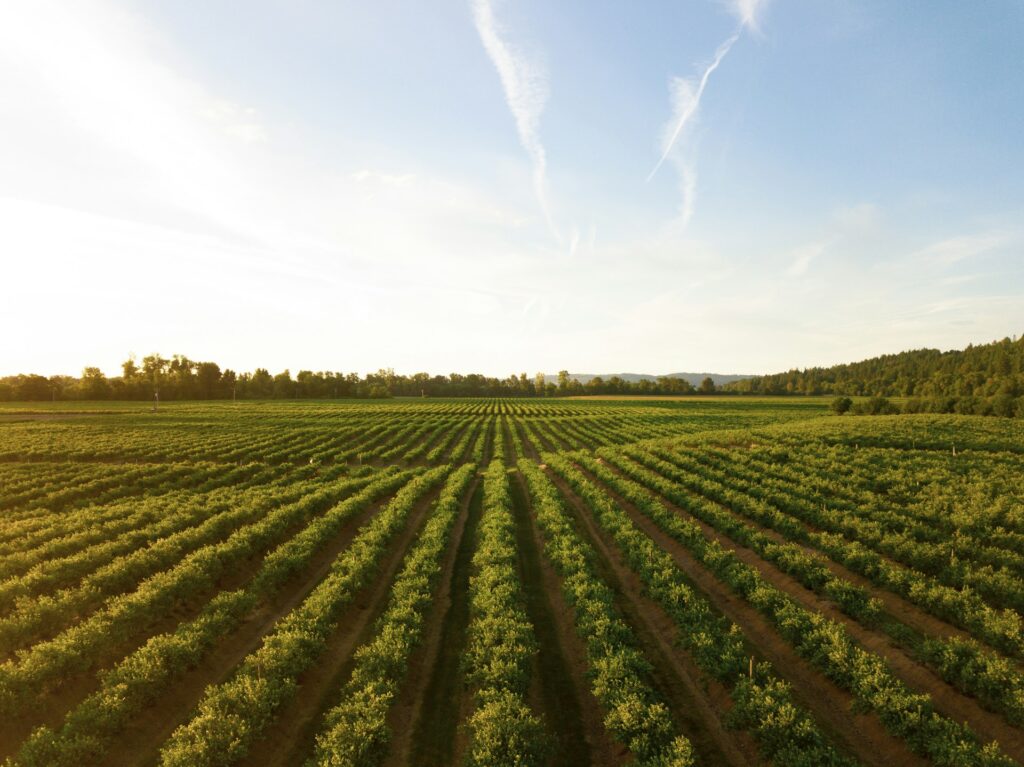Understanding Sustainable Agriculture
When we think of sustainable agriculture, it’s often associated with preserving the environment for future generations. But there’s much more to this approach, which considers the interconnectedness of the environment, economy, and social systems. By emphasizing responsible stewardship of natural resources, sustainable agriculture ensures that the land remains productive and fertile long-term. In thriving sustainable agricultural communities like cannabis in Portland, Maine, you’ll find a deep commitment to preserving natural resources, which extends far beyond the field. This cornerstone of responsible farming serves as a model of how agriculture can contribute positively to the environment rather than depleting it.
Moreover, sustainable agriculture is not a one-size-fits-all concept; it adapts to individual farmers’ and regions’ specific conditions and needs. It’s about creating robust and adaptable systems capable of enduring challenges posed by climate change and market fluctuations. These practices aren’t just for small-scale farms either; they have the potential to be scaled up to benefit the broader agricultural sector. With a holistic approach, sustainable agriculture highlights the importance of diverse production systems that enhance ecosystem services, promote biodiversity, and support the vitality of the land.
Benefits of Adopting Eco-Friendly Farming
Adopting eco-friendly farming practices benefits the environment and the individuals who depend on it, including producers and consumers. For farmers, transitioning to such methods often results in fewer inputs like synthetic fertilizers and pesticides, reducing costs and improving farm health. Environmentally conscious practices encourage more diverse wildlife, which enriches the ecosystem and creates a balance that naturally deters pests, eliminating the need for harmful chemicals. Meanwhile, consumers benefit from access to products that support their health and the planet’s well-being.
Beyond direct health and ecological advantages, eco-friendly farming has a pronounced effect on sustainability in the broader sense—contributing to water conservation, soil fertility, and a reduction in greenhouse gases. These practices foster a reciprocal relationship with the land, sustaining both the land’s productivity and health. This is essential for the ongoing challenge of feeding an ever-growing global population without exhausting the resources upon which agriculture depends.
Essential Techniques in Sustainable Farming
Several core techniques are at the heart of sustainable farming, each contributing to environmental stewardship. Crop rotation, for instance, is a time-honored practice whereby different crops are planted sequentially in the same area to optimize soil health and reduce pest populations without harmful pesticides. This method ensures that crops that deplete specific nutrients are followed by those that replenish them, maintaining a natural balance and fertility.
Embracing biodiversity through polyculture and diverse planting strategies ensures robust crop yields and protects against disease proliferation. Employing natural pest predators is an environmentally sound response to pest control, promoting a balanced ecosystem where beneficial species thrive. Moreover, techniques such as green manure, cover cropping, and composting enrich the soil organically, reducing dependency on non-renewable resources and creating a healthier growing environment for crops.
Modern Innovations in Sustainable Agro-technology
Innovation plays a pivotal role in advancing sustainable agriculture in our current era. Groundbreaking technologies like precision farming leverage big data analytics, allowing farmers to manage their fields with unprecedented precision. This technology enables targeted irrigation, fertilization, and pest management, optimizing the use of resources and minimizing waste and environmental impact. Likewise, advancements in biotechnology contribute to the development of crops better suited to organic and low-input farming, further corroborating technology’s role as an ally to sustainable farming practices.
With the advent of drones and remote sensing technologies, farmers can closely monitor their crops’ health and soil moisture levels from afar without the need for intensive labor. Such innovations save time and resources and provide crucial data that helps make informed, sustainable decisions and enhance crop yields without infringing on the natural environment.
Organic Certification and Its Role
Organic certification bridges sustainable agriculture practices and the consumer, providing a trusted seal of approval that assures environmental and health safety standards are met. This certification, a process that rigorously audits farming methods, supports farmers committed to organic, sustainable practices by providing them access to a rapidly growing market of consumers seeking products that align with their environmental ethics. Through this certification, consumers can trust that their purchase decisions reinforce a sustainable and ethical food system.
Community Supported Agriculture (CSA) and Local Markets
The Community Supported Agriculture (CSA) model is another facet of the sustainable agriculture movement, fostering a direct connection between local farmers and their communities. This partnership benefits both parties—consumers receive fresh, seasonal produce often picked at the height of ripeness and flavor, while farmers gain financial security through prepaid CSA memberships. These partnerships encourage local economies and allow consumers to be intimately involved in the success of sustainable farming practices within their community. Moreover, initiatives like CSAs contribute to reduced food miles and associated carbon emissions, as the produce does not travel far to arrive on dinner tables.
Impact of Sustainable Farming on Rural Communities
Sustainable farming provides a lifeline to rural communities, often suffering from economic hardships and declining populations. By adopting sustainable methods, these communities can create a resilient agricultural sector rich in jobs and economic opportunities. It ensures the continued cultural heritage of farming, preserving the knowledge and traditions passed down through generations. According to the National Organic Program, organic agriculture, in particular, tends to involve more labor and thus can create more job opportunities compared to conventional farming methods.
Challenges Facing Sustainable Agricultural Practices
Despite widespread acknowledgment of their numerous benefits, sustainable agriculture practices face various challenges. High initial costs and a steep learning curve can dissuade farmers from transitioning. Sustainable farmers often have to compete with large industrial operations that can undercut prices through economies of scale and subsidies that favor conventional farming methods. There’s also the obstacle of building market demand and educating consumers about the value of products resulting from sustainable practices. Yet, these hurdles can be overcome with strategic policies and consumer education, paving the way for a more sustainable agricultural future.
Encouraging the Next Generation of Sustainable Farmers
The success of sustainable agriculture hinges on the willingness of the next generation of farmers to adopt and further develop these practices. Initiatives to equip young farmers with knowledge and skills must be a priority, including access to land and capital, sustainable farming education, and mentorship programs. Empowering the new wave of farmers with the tools to innovate within sustainable agriculture will be integral to addressing the global challenges of food security and climate adaptation.
Conclusion: The Impact of Consumer Choices
In the intricate tapestry of sustainable agriculture, each thread—the farmer, the technology, or the methods—plays a crucial role. Yet, the consumer’s power of choice can significantly shape the landscape of agriculture. The rise of CSA programs and the demand for organic certification are testaments to the consumer’s influence. Every purchase of sustainably farmed produce is a tangible support for environmental stewardship, economic fairness, and social health. Thus, informed consumer choices can ripple effect, promoting a shift towards more sustainable, eco-friendly farming worldwide.







